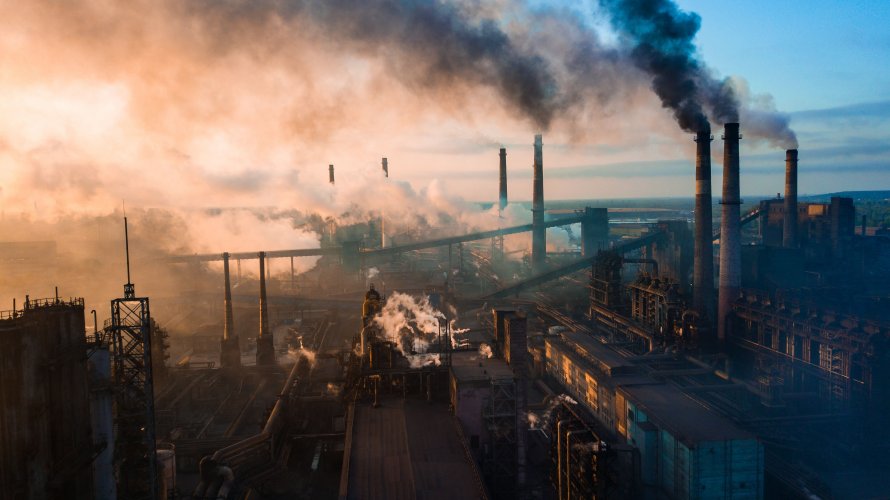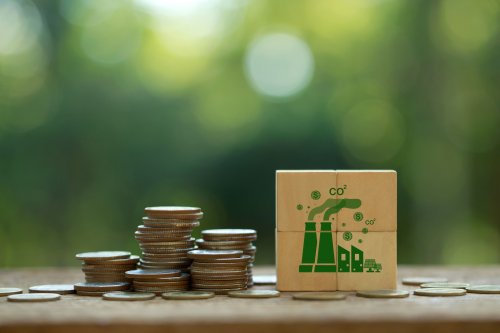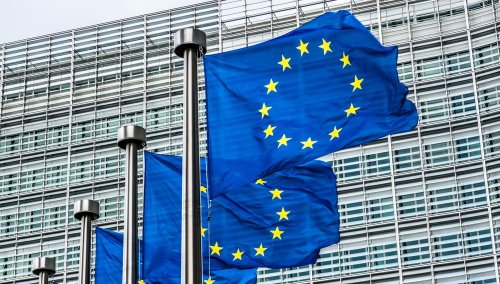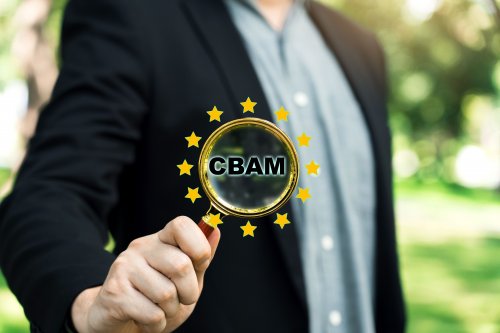Ukraine will be able to get a deferral from participating in the European carbon adjustment mechanism CBAM if the government intensifies negotiations with the EU and has a strong position.
After all, the payment of the carbon duty may become an unbearable burden for industrial enterprises affected by the war, said Stanislav Zinchenko, Chairman of the EBA Committee on Industrial Ecology and Sustainable Development and Director of GMK Center, OBOZREVATEL reports.
CBAM applies to imports of cement, iron, steel, aluminum, fertilizers, electricity and hydrogen. It is one of the main instruments of the EU's climate policy, which is designed to stimulate global decarbonization to reduce greenhouse gas emissions and limit global warming to 1.5℃ and at least slow down catastrophic climate change.
“[CBAM] This is a very big problem that can finally "finish off" metallurgical plants that are not operating at full capacity. And it will affect not only metallurgy, it will affect the cement industry, the chemical industry, and the energy sector," he said.
Zinchenko emphasized that, according to EBA calculations, Ukrainian exports will lose at least €1.5 billion annually due to CBAM. In addition, the cost of CBAM certificates is unknown.
He emphasized that negotiations on CBAM for Ukraine have been going on for 4-5 years, but the activity of the Ukrainian side in this matter remains not very high, despite the seriousness of the problem.
According to him, Ukraine can get a deferral from paying the CBAM, which is provided for by European law in case of force majeure, which is a war. However, this requires a strong position of the Ukrainian side, which is currently absent.
From October 2023 to 2026, companies will only have to report on direct emissions from goods imported to the EU. Starting in 2026, importers will have to obtain CBAM certificates and pay the difference between the European price for greenhouse gas emissions in the EU Emissions Trading System (EU ETS) and the price in the country of origin. Thus, in 2023, the cost of allowances in the ETS reached about €76, while in Ukraine the cost of a ton of carbon emissions was UAH 30. The carbon tax will be introduced gradually until 2034 at the same rate as the abolition of free emission allowances for European producers.
One of the ways to reduce the CBAM tax burden is through environmental modernization of enterprises. This means that a company can reduce emissions and thus buy fewer CBAM certificates. Such modernization can be carried out at the company's own expense or through financing programs.
However, European companies have been receiving funding for eco-modernization and decarbonization projects for years, and this funding continues to this day. For example, in just eight months of 2023, several European companies received grants or other state aid for decarbonization worth €8.7 billion. However, there is no similar assistance for Ukrainian enterprises, and in the context of the war, companies can only attract the necessary credit financing at very high interest rates – 20% or more.
Ukraine needs access to financing and support programs for the green transition of its industry. The €50 billion Ukraine Facility, a financial support program that provides for the restoration of destroyed industrial facilities using the best available technologies and provides funding to modernize the Ukrainian economy, as well as increase its resource intensity and competitiveness, is a good opportunity. However, the environmental community believes that this program alone is not enough.
As EcoPolitic previously reported, Olha Boyko, coordinator of the EBA's Industrial Ecology and Sustainable Development Committee, warned that the launch of the Ukraine Facility would replace some other support programs, which may prevent Ukraine from receiving about €4.4 billion in potential and existing funding from the EU for green transformation by 2027.





